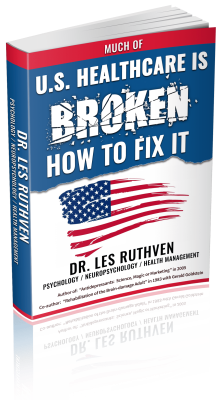Last updated on January 6th, 2024 at 08:33 am
We have known for at least 75 years that prevention is the key to improved healthcare yet the medical profession continues to give us back end medicine, that is, treat the health problem after the fact.
The following may be new to some of my readers yet every doctor knows the following but persists in practicing medicine as usual.
For example, obesity has been linked to: heart disease, high blood pressure, high cholesterol, heart failure, heart attack, type 2 diabetes, obstructive sleep apnea, breast and colorectal cancer, dementia and AZ, depression, chronic pain. Studies suggest that high levels of cortisol from long-term stress can increase blood pressure and stress can promote the build-up of plaque deposits in the arteries.
Overweight/obesity is known to increase the risk of at least 13 different types of cancer. Excess weight makes up 10% of cancers in the U.S. Currently 90% of adults with type 2 diabetes are overweight or obese. Currently 30% of overweight people have type 2 diabetes and 85% of diabetics are overweight!
The combination of four healthful lifestyle factors—maintaining normal weight, exercising regularly, following a healthful diet and not smoking—seem to be associated with as much as an 80% reduction in the risk of developing the most common and deadly chronic disease.
Exercise is the best and cheapest “medicine”
It was either a fact or an urban legend but I believe it is true that 10,000 steps a day is a key to a recipe for health and longevity. For the average person (thin or fat) adding a 30 minute walk each day will add 3,000 to 4,000 steps to the day’s normal activity will bring a person to the 10,000 step threshold for better health and greater longevity as well.
What do all of the above require of the person?
The only requirement of the person for better health and increased longevity, as well as substantially lower healthcare costs, is simply behavior change! The problem is in the U.S. we have a disease oriented system of healthcare when in fact there are not very many diseases, at least non-preventable diseases, and most of our health problems are largely due to our own behavior.
Physician training at the undergraduate, medical school and the various residencies are almost exclusively involved in the biophysical sciences; however, the problem is the solution and answers to the vast majority of our health problems are not found in the study of the biophysical sciences but are found in the study and practice of normal and abnormal human behavior or the field of clinical psychology. All professions tend to practice what they have been trained to do and the medical profession is no different from the others. As a psychologist I tend to see health in terms of my study of human behavior and I believe physicians are most comfortable seeing health in terms of their particular training as well. As a psychologist I would err if I tried to treat a patient with yellow fever as would physicians who prescribe exclusive biophysical treatments for largely preventable diseases. Here the physician’s focus is prescribing a drug, for example, when the primary focus for improved health should be on behavior change.
In conclusion, let’s start treating health problems COMPREHENSIVELY.
I believe Hippocrates was right, physicians should know even more about their patient than even about their patient’s disease. When a patient is presented with a diagnosis of a serious health problem—cancer, heart disease, diabetes—he/she is given immediately a strong dose of anxiety, which will have a profound effect on the their whole life, emotional well-being and their health outcome as well. In their actions physician claim to take care of these personal-emotional factors by Xanax-type and a long list of other mental health drugs. However, my review of the health literature tells me that these drugs are not a proven substitute and in fact cause additional health problems for the patient due to the drug’s adverse side effects.


